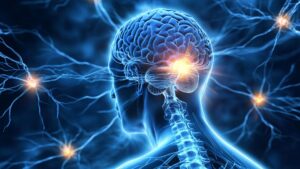

View Topics

When we think about staying healthy, we often focus on our hearts, our weight, or our muscles. But the most complex and vital organ we have is the one sitting right between our ears. Topics like brain health and Alzheimer’s are quickly becoming some of the most important conversations in modern medicine – and for…

Living with a chronic condition can feel like navigating a ship through unpredictable waters. For millions of people around the world, epilepsy presents a unique set of challenges that extend far beyond the moments of a seizure itself. It affects how you plan your day, how you interact with your environment, and how you envision…

In our fast-paced modern world, stress has become a constant companion for most of us – tight deadlines, financial pressure, and relationship problems. We tend to think of stress as a knot in the chest or a weight on the shoulders, but the real damage happens inside your head. Understanding the connection between stress and…

Parkinson’s disease is a condition that affects the nervous system and the parts of the body it controls. It’s one of the most common movement disorders in the world, and the number of people living with it continues to grow. Getting a diagnosis can feel overwhelming – but understanding what’s actually happening in your body…

Sleep is often thought of as downtime for the body – but for the brain, it’s actually one of the busiest periods of the day. During deep sleep, the brain flushes out toxins, consolidates memories, and repairs neural pathways. For millions of people, though, this process is repeatedly interrupted by a condition that literally starves…

The holiday season is often called the most wonderful time of the year. However, for many people, the weeks following the celebrations feel anything but wonderful. You might expect to feel refreshed after taking time off. Instead, you find yourself struggling to get out of bed, feeling irritable, or carrying a lingering sense of dread….

When the temperature drops, our bodies react in many ways. You might notice your fingers getting stiff or your toes feeling like blocks of ice. For most people, numbness and tingling are simply part of living in a cold climate. You step outside into the freezing air, and your extremities quickly begin to feel dull….

Migraines are far more than just bad headaches. For millions of people around the world, they are a life-altering condition that disrupts work, relationships, and everyday routines. A migraine attack can leave someone bedridden for hours – or even days – and yet the condition remains widely misunderstood. Recognizing the different migraine types and knowing…

Chronic pain is one of the most widespread and debilitating health challenges of our time. Unlike acute pain, which serves as a temporary warning signal, chronic pain persists for months or even years – reshaping daily life, limiting mobility, and taking a heavy toll on mental and emotional well-being. For many people, it becomes the…

It’s a common scenario: you wake up with a dull ache that quickly turns into sharp pain. You feel it in your neck, but you also feel it deep in your shoulder and even down toward your elbow. You might start wondering if you pulled a muscle at the gym or if something is wrong…